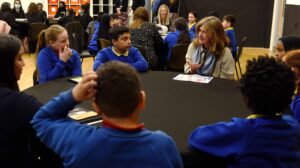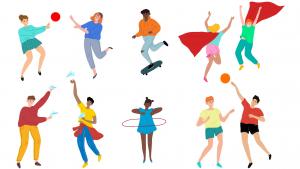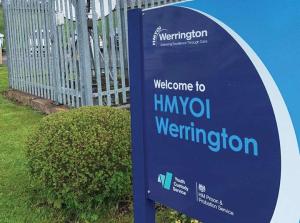The Covid pandemic has ushered in a new appreciation of the role of schools in our society and a recognition of the fantastic work teachers have done. During lockdown, they rallied to help families in need, to provide quality remote education and to support the wellbeing of their pupils. Parents grappled with the task of helping their children learn online and saw the effects of missing schoolfriends and daily routine. It was a salutary reminder of how much schools can give, and how rich and varied that contribution is.
The Big Ask survey has provided a vital insight into children’s experiences of the Covid pandemic – particularly their impressions of online learning and the return to school. It has shown how much children like school, and how they missed it when the gates were closed.
We heard from children who were passionate about being back at school again. They spoke movingly about the challenges of online learning and missing their peers. As one 9 year-old-girl told us: ‘Lockdown really stops children because they can’t do…stuff [they] love and it makes them go all shaky like they can’t study the normal day and if they need to achieve a job they want to do, it will be hard for them to pass the exams’.
Simply put, contact time with teachers is critical to progress on the core functional aspects of learning – on literacy and numeracy, on developing a love of reading, and strengthening their capacity for problem-solving. Children spoke about finding this work challenging, but fulfilling – they feel strongly about the importance of education for its own sake. As one 11 year old girl put it: ‘I really want to learn even if it’s hard because education is important to me’. Education was seen as particularly important by children who face challenges at school – children with special educational needs, or eligible for the pupil premium.
The Big Ask also revealed that young people feel strongly about fairness and the wider educational picture – they want every child to have the opportunity to go to a good school. As one 12 year old boy said: ‘Bad education stops some children from being able to achieve something great in life but I am lucky because I have a great education’.
Crucially, The Big Ask revealed that children wanted to throw off unhelpful labels. Time and again, they explicitly rejected generalisations such as the ‘snowflake generation’. Reading their responses, it is also clear that they are not a ‘lost generation’: they are determined to work hard, do well and refute defeatist predictions.
However, it is also clear that children do need support to get there – particularly those children who were already struggling before the pandemic. Education has come a long way in recent years, and there has been particular progress on transforming the level of ambition for disadvantaged children. What’s needed now is to continue that journey with a real focus on helping every child to reach their goals, and that means having high expectations for all pupils and getting the right support in place when children are falling behind their peers. As one 10-year-old boy said: ‘My reading and spelling is not very good. All the words get muddled up and I need more help’.
None of this has to mean a concession in academic expectations: it does mean careful curriculum design, early intervention and responsive teaching, all of which are much easier to do if schools have the right support. That will often mean being part of a network – a high‑functioning family of schools – so that the right support is available across that family, whether that is high quality SEND support, academic specialism or behaviour management.
As we emerge from the pandemic, what is needed is a radical recovery plan for children. A comprehensive ‘catch‑up’ package with a focus on support for those children who need the most help. This should include an urgent focus on improved services to children struggling with attendance, emotional problems, and other common consequences of the pandemic. Children should continue to be offered tutoring where it is most needed, and schools should be given the capacity to run voluntary sessions at the end of the school day, for academic catch‑up support and a richer set of extra‑curricular activities.
Children are also clear that there should be a wider focus on vocational options in school. A 15-year-old girl wrote: ‘I was very keen on starting business studies at my school, but they took down the subject just before I started year 9’. Having high expectations does not always mean an academic route. If the best route to a career means a different form of training or employment – an apprenticeship, an entry‑level job – children should be given the information and the support to make a success of that.
In some settings, there have been encouraging school-led community initiatives directed at making the pathway to adulthood a more coherent process from early years to leaving school – a ‘cradle‑to‑career’ model. This kind of thinking could set more children on the pathway to success. At this moment of newfound appreciation for the vital work of education system, it would be timely to give children and schools the support they need to break new ground in the great effort they are engaged in. The reward? After all their sacrifices, a whole generation of young people getting the start in life they so richly deserve.






